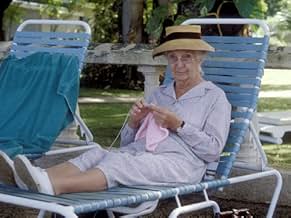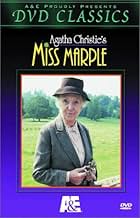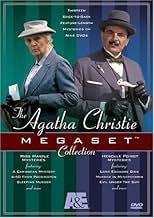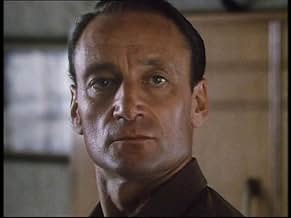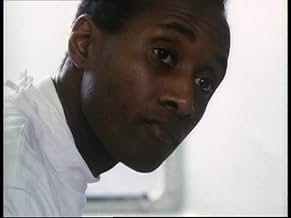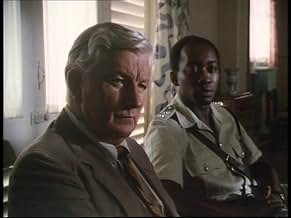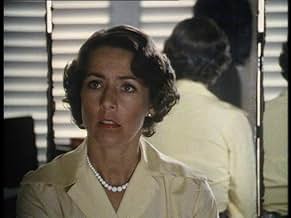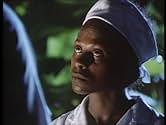Miss Marple: L'oeil de verre
Ajouter une intrigue dans votre langueWhile on vacation at a resort hotel in the West Indies, Miss Marple correctly suspects that the apparently natural death of a retired British major is actually the work of a murderer plannin... Tout lireWhile on vacation at a resort hotel in the West Indies, Miss Marple correctly suspects that the apparently natural death of a retired British major is actually the work of a murderer planning yet another killing.While on vacation at a resort hotel in the West Indies, Miss Marple correctly suspects that the apparently natural death of a retired British major is actually the work of a murderer planning yet another killing.
- Réalisation
- Scénario
- Casting principal
- Greg Dyson
- (as Robert Swan)
- Raymond West
- (as Trevor Bowen)
Avis à la une
Not like you haven't got a whole resort hotel filled with likely suspects. On doctor's advice Joan Hickson has left St. Mary Mead for the sunny climate of Barbadoes and she's booked into a hotel run by the husband and wife team of Adrian Lukis and Sophie Ward. A Colonel Blimp like guest played by Frank Middlemass who makes a crashing boor of himself to Hickson and the rest of the guests is found dead in his room the next day after he tells Hickson he's on to a murderer from back in his days in the colonial service. Some blood pressure medicine is found at the scene that doesn't belong to him. That sets Hickson's little gray cells inside her gray head working.
Two more murders follow before Hickson figures it out. And figuring prominently is the glass eye that Middlemass had.
Hickson as Marple is the oldest Marple out there unless someone tells me different. She was in her 80s doing this role. But her powers if anything seem to increase with age.
Jane Marple is always good viewing for anyone wanting to get their little gray cells in action.
By far and a way the best version of Christie's whodunit. It was filmed in Hollywood in 1983 as a lacklustre TV movie starring Helen Hayes as Miss Marple and was saddled with an indifferent script. This BBC production is lengthly, but there is more attention to detail and a first rate cast including Donald Pleasance, Frank Middlemass and not forgetting Hickson's Miss Marple. All do fine work in their roles.
True, Petit had previously helmed PD James's "An Unsuitable Job for a Woman", with many an attempt to "subvert" that conservative Queen of Crime's material in a feminist direction; but the movie tanked, and this Agatha Christie version is more respectful. As others have remarked, the screenplay (by regular Christie scenarist Trevor Bowen, who as usual writes in a small part for himself) introduces a dash of political correction. Miss M trots round to Isabelle Lucas's shanty for a nice cup of tea to show she's no segregationist, and Shaughan Seymour's haughty white colonial administrator patronises the black police inspector: reasonably so, since the latter has less to do with solving the crime than Miss M's English foil DI Slack, as it turns out.
Donald Pleasence injects an amusingly repellent late cameo as a rough old fellow guest; Barbara Barnes (what happened to her?) is alluring as his put-upon secretary. But for the most part the story unrolls with no conspicuous directorial touches. This was Petit's height as a commercial proposition; subsequently he sank back into the wilderness of arty late-night TV projects. The explosion in British feature film production since the early 1980s seems to have left him as high and dry as Michael Winner, though one would not bracket them for any other reason.
Joan Hickson, as the often underestimated but formidable Miss Marple, seems older and rather tired and the conversations lack her usual wit. She is also put off with the overtures of Frank Middlemass, who is retired from the military and goes around boring people with endless monologues from the past. Nevertheless, once the usual murder takes place, she steps into her role. She strikes up an alliance with a wealthy and ill-mannered Donald Pleasance, who realizes that she is much more than a little old woman with knitting needles in her hands. Miss Marple makes it clear that she has no use for his boorish behaviour and often ignores him until he shows some courtesy. Together, however, they make progress with a group of rather unsavoury guests at the resort. Miss Marple also has the benefit of a much better relationship with the local police than she does at home.
After this Caribbean holiday (certainly an unusual twist in Miss Marple's adventures), she is once again at home in her garden with her nephew. He apologizes for the wet weather but she tells him how glad she is to be back. I think viewers too will prefer the English countryside to this tropical setting. We feel Miss Marple is more herself in her natural habitat.
I cannot believe the lack of positive comments on this glorious adaptation. Everything is on point: the acting, the locations, the music, the subtle changes to the book, etc. They made what is, in my humble opinion, a wonderful piece of drama. It is superior in every way to the inferior Helen Hayes version and later ITV adaptation.
Joan Hickson is, as always sublime in the role, she's terrific. Adrian Lukis and the gorgeous Sophie Ward are superb, and that closing scene between them is superbly acted and gripping.
Visually this one is a real treat, they picked the perfect location for filming its, plus the period detail is spot on. I just love that scene where Miss Marple goes to visit Victoria's Aunt.
I could watch this adaptation over and over, the book was beautifully brought to life here, I think seeing Miss Marple getting to work in such a 'different' setting is what makes this one stand out.
10/10.
Le saviez-vous
- AnecdotesThe subtle beeping sounds in the background for all the evening outdoor scenes are made by frogs, which are very common in the Caribbean.
- GaffesMiss Marple finds a library copy of the Pelican edition of "To Define True Madness: Commonsense Psychiatry for Lay People" in Molly Kendall's room, with Date Due stamps ranging from 1941 to 1951; this book was first published by Penguin in hardback in 1953, and the Pelican edition was released in 1955.
- Citations
Jason Rafiel: I had to think about this quite a bit before mentioning it to you.
Inspector Weston: And why is that, Mr. Rafael?
Jason Rafiel: It wasn't my idea, and the person who had it - the idea, I mean - is a little old lady who knits and wears lace. She also has a mind like a bacon slicer.
Inspector Weston: Why didn't she come to me herself?
Jason Rafiel: She didn't think you'd take her seriously.
Inspector Weston: I might have done.
Jason Rafiel: I doubt it. It's a very good disguise. She even had me fooled for a minute.
[He laughs]
Inspector Weston: Better have her name for the record.
Jason Rafiel: Miss Marple.
Inspector Weston: [Startled] What?
Jason Rafiel: Miss Marple.
Inspector Weston: You wouldn't know if this lady comes from a village in England called St. Mary Mead?
Jason Rafiel: Yeah, yeah! That rings a bell... I think that's what she said - something like that anyway. How do you know that?
Inspector Weston: [Laughs] Magnificent! I've heard her called the best personality analyst in the world, a ruthless forensic brain - a mind like a bacon slicer would do very well.
- ConnexionsFeatured in Remembers...: George Gallaccio Remembers... Miss Marple (2025)
Meilleurs choix
Détails
Contribuer à cette page


